EMC Basics+ Workshop
IEEE Southeastern Michigan: Chapter VIII (EMC)
There are the videos from the event - we were at a new venue and we had some difficulties with the Zoom setup.
John and Candace - Suriano EMC Basics
Mark Steffka - Antennas and Transmission Lines
Robert Adams - Spread Spectrum
Rohde & Schwarz - Spectrum Analyzer Basics
Event Photo Gallery: https://photos.google.com/share/AF1QipMXpP7kdCQvMUhoq_nKCZ-XZ4yQVEoWkg6WwzByYx9GIoyPaLIxY6tfQOtGHGV5Hg?key=UUJVTzhqVHl2MlZxbnN1VlBpcWZHUlZLNHRPU0h3
What are the basic aspects of EMC you should be familiar with? What are the characteristics of antennas and transmission lines relevant to EMC? Why does wave chopping cause radiation? How does Spread Spectrum save money? Is there a proper way to use an oscilloscope? What makes spectrum analyzers truly spectacular? Come to our EMC Basics+ Workshop and find out! Get a firm hand on the basics of EMC!!
Oscilloscope Essentials
Come to a hands on lab to learn the fundamentals on how to drive an oscilloscope. We will have exercises to help you learn how to capture a stable waveform and optimize for high fidelity measurements. You will learn how to properly setup the vertical, horizontal and trigger systems on any oscilloscope. We will also focus on how to optimize the signal acquisition for accurate measurements.
Spectrum Analyzer Essentials
Join us for a hands on lab to learn how to drive a spectrum analyzer. You will learn the main controls to operate a spectrum analyzer such as Center, Span, RBW, and Reference Level. We will also investigate the effect of different RBW settings on different types of signal and how we can use RBW to lower the noise floor.

Monolithic Power systems has graciously agreed to host our workshop! It will be held on January 20th, 2024 at Monolithic Power Systems (19499 Victor Parkway Livonia, Michigan).

Lunch will be provided for the workshop by AP Americas.


Workshop will start at 10:00 AM, and end at 4:00 PM EST. See Agenda Below.
Date and Time
Location
Hosts
Registration
-
 Add Event to Calendar
Add Event to Calendar
- Starts 02 January 2024 01:00 PM UTC
- Ends 19 January 2024 11:00 PM UTC
- 0 in-person spaces left!
- Admission fee ?
- Menu: Regular, Vegetarian
Speakers
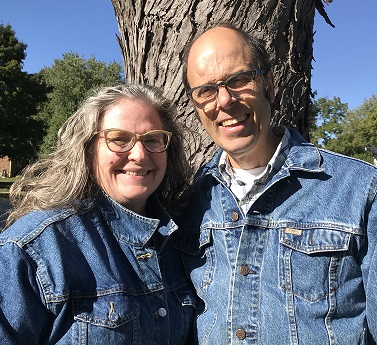 Candace and John Suriano
Candace and John Suriano
EMC Means More Than Everyone Must Comply
EMC means more than Everyone Must Comply, it is also known as ElectroMagnetic Compatibility. EMC is the measurement, classification, analysis, and correction of electromagnetic interference. If your speakers buzz from rectified cell phone signals, a light dimmer disrupts your favorite radio station, and even when your laundry creates a static discharge that wakes up your computer, it is time to learn some basics of EMC. Join Candace and John Suriano as they use demos and equations including exploding balloons to explain the basics of EMC!
Biography:
Candace Suriano is a graduate of GMI Engineering & Management Institute (BSME), has graduate degrees from Purdue University (MSME, MSE), and the University of Dayton (Ph.D.). She is the author of numerous papers and magazine articles on electromagnetic compatibility, and she chaired an antennas and probes workshop at several IEEE EMC symposia. Candace has a patent on motor noise suppression. Her interests are in the areas of electromagnetic compatibility, electromagnetic modeling, and teaching. Candace is a mom with interests in MOM. She may be contacted at: candacesuriano@gmail.com .
John Suriano is a graduate of GMI Engineering & Management Institute (BSEE) and has graduate degrees from Purdue University (MSEE, PhD). With Candace, he has authored numerous papers and magazine articles on electromagnetic compatibility. He has patents in the areas of noise suppression and motor design. His interests are in the areas of electromagnetic compatibility and electromagnetic modeling. John can be reached at: jrsuriano@gmail.com
Address:Auburn Hills, United States
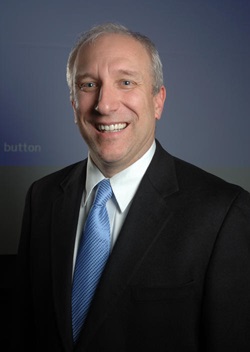 Mark Steffka
Mark Steffka
Basics of Antennas and Transmission Lines
Many professionals currently working in EMC (as well as those working in electronic system design/development) either have not had a formal background in antennas and transmission lines, or have not had an opportunity to utilize their previous knowledge or skills in this area. Since intentional antennas and “antenna effects” in systems can make-or-break a product's EMC compliance (or render communication systems non-functional), it is critical that there be an understanding of the physics involved in antenna and transmission line design and engineering. This session will consist of an explanation of antenna and transmission line theory, show the use of the relevant mathematics in antenna design, and cover the important characteristics of transmission lines.
Biography:
Professor Mark A. Steffka, is a Professor at the University of Detroit – Mercy. His university responsibilities include teaching undergraduate, graduate, and professional development courses on electrical/electronic circuit design, electromagnetic compatibility (EMC), antennas, and electronic communication systems. He received his B.S.E.E. from the University of Michigan and his M.S. from Indiana Wesleyan University.
Professor Steffka is an author of the renowned EMC text Introduction to Electromagnetic Compatibility 3rd Edition. He was selected as an IEEE EMC Society Distinguished Lecturer and is the recipient of the IEEE “Laurence G. Cumming Award” (the EMC society’s highest distinction).
Mr. Steffka also has over 35 years of extensive full-time industry experience with military HF/VHF/UHF secure communications, spacecraft instrumentation, automotive electrical/electronics, and industrial electronics.
He holds patents on methods for electromagnetic interference reduction, as well as aircraft and ground vehicle antenna systems. Professor Steffka is the author (or co-author) of textbooks and book chapters on EMC, as well as numerous technical papers presented at IEEE and SAE conference/symposiums (both as a technical session participant or invited speaker).
Address:Canton, United States
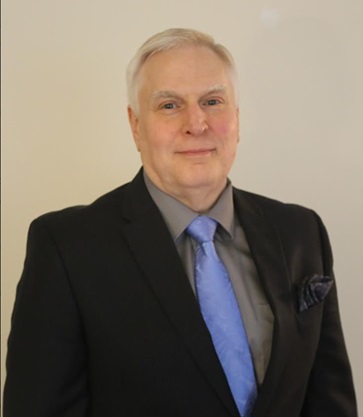 Robert Adams
Robert Adams
Spread Spectrum Spectacular
Mechanical engineering uses spread spectrum in a way that is easy to understand. Vibrations are spread across the spectrum by making chains with various size links to power a quieter drive, and fans operate with different sized vanes that are balanced around the hub to provide a quiet stream of air. In a similar way, electronic pulses can be shaped to spread the spectrum, so there is less electronic noise emitted. Join us as Bob Adams elucidates the basics of Spread Spectrum in the EMC + Workshop! Spread Spectrum as applied to EMC is technique to reduce the peak emissions of periotic signals by spreading its bandwidth. It is an available feature of many high-speed digital IC that have internal clock generators. Also covered will examples of where SS is counter productive and other pit falls of applying SS.
Biography:
Robert Adams is an EMC Expert at Visteon applying his knowledge to thorny electromagnetic compatibility issues. Bob Adams graduated from IIT (BSEE). He was the head of the EMC Design group at Visteon 22-23 In 23 Bob moved to a Subject Matter Expert role working mostly on battery management systems for Electric Vehicle.
Email:
Address:United States
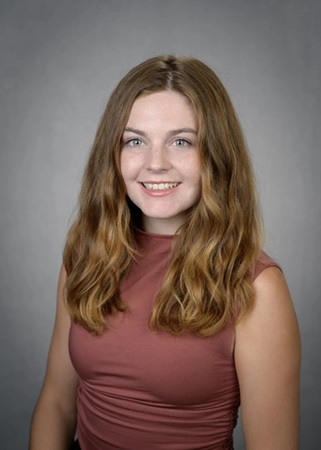 Sophie Platten
Sophie Platten
Biography:
Sophie Platten is a member of the Rohde & Schwarz Graduate Development Program. She recently graduated from University of Wisconsin-Madison in 2023 with a degree in Material Science and Engineering.
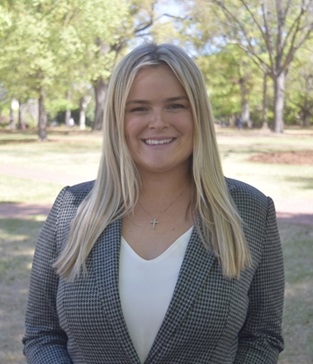 Grace Roupe
Grace Roupe
Biography:
Grace Roupe is a member of the Rohde & Schwarz Graduate Development Program. She recently graduated from University of South Carolina in 2023 with a degree in Biomedical Engineering.
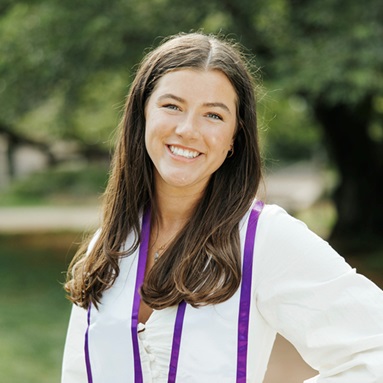 Maeve Ryan
Maeve Ryan
Biography:
Maeve Ryan is a recent graduate of the University of Washington with a Bachelor of Science in Chemical Engineering. She is a part of Rohde & Schwarz's Graduate Development Program.
Agenda
Workshop will start at 10 AM, and end at 4 PM EST.
10:00-10:45 AM EMC Means More Than Everyone Must Comply - Drs. Candace and John Suriano
10:45-11 AM Break and Q&A (Brownies)
11:00-11:45 AM Basics of Antennas and Transmission Lines - Professor Mark Steffka
11:45-12:00 PM Break and Q&A
12:00-1:00 PM Lunch (Pizza and Salad)
1:00-1:45 PM Spread Spectrum Spectacular - Expert Robert Adams
1:45-2:00 PM Break and Q&A (Cookies)
2:00-2:45 PM Oscilloscope Essentials - Rhode and Schwarz Speakers
2:45-3:00 PMBreak and Q&A (Apples and Oranges)
3:00-3:45 PM Spectrum Analyzer Analysis - Rhode and Schwarz Speakers
3:45-4:00 PM Q&A
Chapter website: http://www.emcsociety.org
To be added or removed from the Southeastern Michigan IEEE EMC email list, please send an email to scott@emcsociety.org with ADD or REMOVE as the subject.

